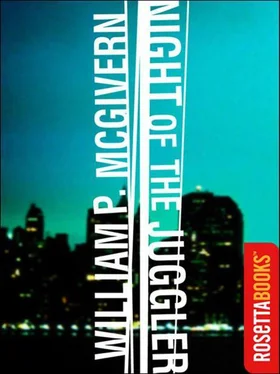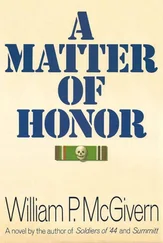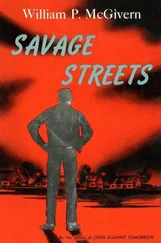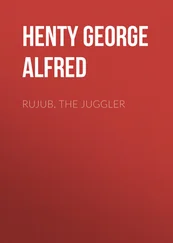William McGivern - Night of the Juggler
Здесь есть возможность читать онлайн «William McGivern - Night of the Juggler» весь текст электронной книги совершенно бесплатно (целиком полную версию без сокращений). В некоторых случаях можно слушать аудио, скачать через торрент в формате fb2 и присутствует краткое содержание. Жанр: Триллер, на английском языке. Описание произведения, (предисловие) а так же отзывы посетителей доступны на портале библиотеки ЛибКат.
- Название:Night of the Juggler
- Автор:
- Жанр:
- Год:неизвестен
- ISBN:нет данных
- Рейтинг книги:3 / 5. Голосов: 1
-
Избранное:Добавить в избранное
- Отзывы:
-
Ваша оценка:
- 60
- 1
- 2
- 3
- 4
- 5
Night of the Juggler: краткое содержание, описание и аннотация
Предлагаем к чтению аннотацию, описание, краткое содержание или предисловие (зависит от того, что написал сам автор книги «Night of the Juggler»). Если вы не нашли необходимую информацию о книге — напишите в комментариях, мы постараемся отыскать её.
Night of the Juggler — читать онлайн бесплатно полную книгу (весь текст) целиком
Ниже представлен текст книги, разбитый по страницам. Система сохранения места последней прочитанной страницы, позволяет с удобством читать онлайн бесплатно книгу «Night of the Juggler», без необходимости каждый раз заново искать на чём Вы остановились. Поставьте закладку, и сможете в любой момент перейти на страницу, на которой закончили чтение.
Интервал:
Закладка:
Directly in front of Crescent-the sturdy prow of this harmlessly beleaguered sex boat-stood Rudi Zahn, her lover, her manager, and her producer, although not necessarily in that order.
Rudi Zahn, a stockily built man in his late thirties, with thinning hair and clear, direct gray eyes, raised both hands and gave the noisy photographers and reporters a friendly, give-us-a-break smile. The smile was not practiced; it was amiable and honest and suggested something true of Rudi Zahn’s character, which tested surprisingly low in the slick cynicism the press expected from Hollywood types.
The reporters and photographers liked the message they were getting from Rudi Zahn and listened to what he had to say, which was: “It was a bumpy flight with a bomb scare. The movie, I mean.” He mentioned a competitor’s product and got a laugh. “It was so bad that people actually walked out on it.” Another laugh.
The jokes were old, but no one minded; Rudi didn’t pretend they were otherwise.
He went on: “We’re tired, but we’ll stay up all night if you’re on deadline. Nate’s got a press kit with some quotes and pix that haven’t been used yet. That’s the bad news.” Another general laugh.
The good news that Rudi Zahn promised the press corps was an early-morning conference, a screening of key scenes from the Stacked House Kid’s next flick, all this graced by a buffet of delicatessen from the Stage Door with champagne for those who were thirsty and whiskey for those who weren’t. .
Within seconds, Crescent Holloway and her group were streaming toward the elevators amid smiles and an eruption of involuntary whistles from the working press.
After midnight, when the important day began (although Gus Soltik did not feel it started until there were streaks of dawn on the horizon), he began to feel drowsy, and the infallible indicator of his mind pointed toward “home.” Using a network of streets and alleys that were like the veins of his own huge body, and subway trains, and the rear tailgate of a truck lumbering along the Major Deegan Highway, Gus Soltik reached 135th Street and St. Ann’s Avenue about an hour after leaving the site of the fire on Ninth Avenue in the borough of Manhattan.
It was very quiet. Rain was falling, and gusts of wind made a noise like scurrying animals in the trash in the curbs and on the sidewalk.
Housing developments, the color of mud, stood in rows stretching toward a dark sky and between them stretched damp, slimy earth, unrelieved by a tree, a leaf, a stretch of grass, a child’s swing, or a chair for an old man or woman to sit in thin sunlight in these barren yards that bordered prison shafts of public housing.
Gus was glad he didn’t live there, glad instead to live in the rotting old tenement with Mrs. Schultz. Senor Perez gave her the money that Gus earned, and sometimes she gave him a few dollars and with that money he could buy all he really needed: hot dogs from street vendors, the cold roll heaped high with onions, a cup of snow ice with sweet bright-colored syrups, or roast walnuts and hot pretzels.
Also, he had a reserve supply of money that no one knew about. Not Senor Perez, not even Mrs. Schultz. Gus had cut a deep flap in the bottom of the heels of his Wellington Boots, and after stuffing these apertures with dimes and quarters, he had pressed the V-shaped pieces of leather back into place, securing them firmly with strips of black friction tape. It gave him a good feeling to know he was walking on his secret money. It was always there if he needed to take a bus or subway or needed to satisfy his sudden, compulsive yearning for things that tasted sweet.
But Gus Soltik disliked spending those precious quarters. That was why he was glad that the kitten purring against his body in the pocket of his jacket hadn’t cost him anything at all.
But while it cost nothing, it would solve a problem that had tormented him for months. How to make “greenropes” cross that street.
Gus Soltik would sleep now, to be wakened by the distant bells of St.
Stanislaus. He knew he would hear Mrs. Schultz going down the creaking stairs, knowing that in her old hands she would be holding a leather prayer book and the heavy wooden rosary from the old country, on her way to his mother’s dead mass.
Chapter 6
Gypsy Tonnelli was a practical cop, who trusted his instincts and knew from experience that it wasn’t only the “facts” or what you learned from informants that solved your cases; rather it was something you ignored or didn’t see until it was too late that often provided directions to solutions. So, pacing the large, high-ceilinged living room of his apartment, he allowed his thoughts to stray, made a conscious attempt not to screen out random reflections but rather permitted external stimuli to play whimsically against all his senses. It was a few strokes after midnight, D-Day Plus One. In each of the previous four years, the Juggler had struck late in the afternoon of October 15. But they couldn’t count on that. As far as Tonnelli was concerned, this was now Red Alert time.
While he paced, chain-smoked, and constantly refilled his cup of coffee, Tonnelli’s eyes occasionally flicked hopefully to the phone on a table beside a cheap chair, a phone connected directly to his headquarters in the 19th Precinct. As the countdown approached zero, the reports from all five boroughs had increased in volume; so far all had been checked out, and all had proved either inconclusive or negative.
Tonnelli deliberately allowed his thoughts to wander, hoping that some significant hidden fact would sense his inattention and be trapped into a revealing carelessness of its own; the elusive lead was frequently snared in this fashion, a victim of indirect surveillance.
Detective Sergeant Boyle was at the 13th Precinct on East Twenty-first Street. He would be on duty there for eighteen straight hours, taking the occasional half-hour sleep break in the precinct-house coffee room. Late in the afternoon Rusty Boyle would break to shower, change clothes and have dinner, at which time he would be at Joyce Colby’s apartment.
The alleged rape the big Irishman had checked out had developed ramifications. Boyle had told him about it. The license number of the rape suspect’s car had been provided by someone named John Ransom, who had later told Rusty Boyle he was dying of cancer.
Rusty had given the number to Dennis St. John from the 10th Precinct. St. John checked the tag with Motors, got an address to go with it, hit the suspect’s apartment, found not only the character Hilda Smedley claimed had raped her, but four rooms full of hot TV sets, cameras, and hi-fi equipment. St. John would get all the credit for the collar, and while he had a head of solid bone, he would probably be reviewed and might be bucked up a grade or two. But none of that was Rusty Boyle’s particular concern. His big Irish heart was bleeding for John Ransom, the man dying of cancer, who was forced to lie to his wife about his upholstery sales and make up funny, interesting little stories about his customers, while gnawed and worried sleepless, not about himself, but how to tell his wife he was dying and how to explain to his daughter, who was in premed school, that there was no money to pay the tuition needed for the next five or six years.
Tonnelli had shocked Rusty by asking him if Ransom had a double indemnity clause in his insurance policy. There was a way to beat those riotous cancerous cells to the finish line by a couple of weeks.
Rent a sailboat and go over the side. Take a drive into the Catskills, miss a curve, and take the long, final drop into the valley.
Why not? All he’d lose was hours of agony. His wife would be spared knowledge of his ordeal, and he’d be giving his daughter the biggest break of all, the chance to earn a degree in medicine. Who knows?
Читать дальшеИнтервал:
Закладка:
Похожие книги на «Night of the Juggler»
Представляем Вашему вниманию похожие книги на «Night of the Juggler» списком для выбора. Мы отобрали схожую по названию и смыслу литературу в надежде предоставить читателям больше вариантов отыскать новые, интересные, ещё непрочитанные произведения.
Обсуждение, отзывы о книге «Night of the Juggler» и просто собственные мнения читателей. Оставьте ваши комментарии, напишите, что Вы думаете о произведении, его смысле или главных героях. Укажите что конкретно понравилось, а что нет, и почему Вы так считаете.












